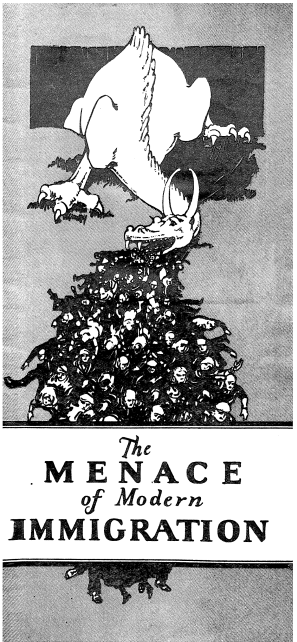 The new Alabama anti-immigration law is wrecking farming and other businesses. And for what? This isn’t the first time US politicians have tried to recast America in their own images. As shown in TV programs such as Boardwalk Empire, the new film J. Edgar, and my own novel Devil’s Den, the 1920s were a time of social turmoil in the United States. During the early part of the decade, national xenophobia prompted the US Congress to impose quotas on immigrants.
The new Alabama anti-immigration law is wrecking farming and other businesses. And for what? This isn’t the first time US politicians have tried to recast America in their own images. As shown in TV programs such as Boardwalk Empire, the new film J. Edgar, and my own novel Devil’s Den, the 1920s were a time of social turmoil in the United States. During the early part of the decade, national xenophobia prompted the US Congress to impose quotas on immigrants.
Senator David Reed (R-Pennsylvania) and Representative Albert Johnson (R-WA), were the architects of the legislation, which passed both houses of Congress by large margins. The bill sought to establish a distinct “American” identity by favoring native-born Americans over Southern Europeans in order to “maintain the racial preponderance of the basic strain of our people and thereby to stabilize the ethnic composition of the population.” Reed’s stated goal: to “keep… American stock up to the highest standard-that is, the people who were born here.” Expressing his conviction that “the immigrant from north-western Europe is much more desirable,” Reed told the Washington Post in 1923 that “[e]xperience shows that the people from south-eastern Europe are more or less difficult to Americanize.” Reed conveniently forgot the “No Irish or Dogs Allowed” shop window signs of an earlier generation, probably because so many of his constituents were Irish-Americans.
Thoughtful and pragmatic immigration reform is needed, but when presidential candidates support the Alabama immigration law, they represent a long and shameful tradition of xenophobia. Of course, the real American natives must have felt the same way when our immigrant ancestors stepped off the boats from Europe.

Aloha man! I completely agree with your thoughts. I really respect what you’re posting here.
Great post, Tim. Xenophobia stems from fear, lack of understanding and compassion, and the fact that it still exists (and is prevalent) is quite sad. Not to mention that Americans should be espeically sensitive to these issues, since our country was founded by immigrants fleeing oppression of many types.
Thanks Dan. Immigration remains an importnat issue. Loook at the ludicrous policy and giving Cuban economic refugees instant asylum (and many benefits) under the Cuban Adjustment Act, but Haitians fleeing for similar reasons are usually deported back to much harsher conditions.